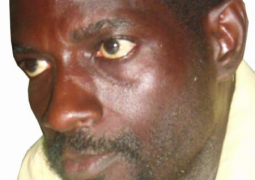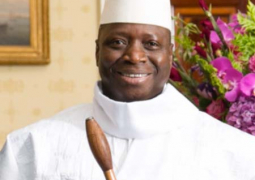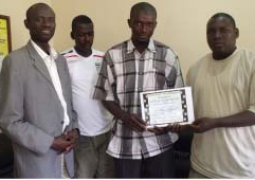The
Gambian anti–corruption bill is being discussed by stakeholders such as the
Ministry of Justice, and the UN Office on Drugs and Crime (UNODC) at the
Kairaba Beach Hotel.
Although
The Gambia is said to be ranked 145 among 175 nations around the world
considered to be least corrupt (CPI 2016 ratings), there is big room for
improvement as corruption, small or big, causes serious setback for a nation
and puts that society at the risk of degenerating into misery and backwardness,
which leads to stark human suffering and human rights violation.
Corruption
is regarded as actions that involve dishonesty, dishonest dealings,
unscrupulousness, deceit, deception, duplicity, double-dealing, fraud,
fraudulence, misconduct, lawbreaking, crime, criminality, delinquency,
wrongdoing and villainy. Bribery,
bribing, insubordination, venality, graft, and extortion all constitute
corruption.
While
the top 10 ranked nations perceived to be the least corrupt are: Denmark, New
Zealand, Finland , Sweden, Switzerland , Norway, Singapore , Netherlands,
Canada , Germany , those that happened to be most corrupt countries as ranked
on the Corruption Perceptions Index 2016 are: Somalia, South Sudan , North
Korea, Syria, Yemen, Sudan, Libya , Afghanistan, Guinea-Bissau , and Venezuela.
We
in The Gambia must therefore put all necessary measures in place to continually
fight corruption and bribery in all their forms. These measures should
constitute the barking dog who keeps the thief away, as well as the denial
strategy to the opportunity that makes a thief, or permits corruption.
According
to the latest CPI ratings, “West African countries, to which Gambia belongs,
have “disproportionately higher levels of corruption than countries in other
regions”.
Although
The Gambia is deemed to be among the least corrupt nations and is setting up an
anti-Corruption Commission, fighting corruption in the country, as the UN
resident coordinator rightly states, would see little success, if at all, if
other relevant institutional reforms are not put in place.
This
is because it has been discovered that countries that fare well in the
corruption perception index tend to have higher degrees of press freedom,
access to information about public expenditure, stronger standards of integrity
for public officials, respect for human rights and independent judicial
systems. It is so because these are among the cardinal instruments that
monitor, investigate, reveal, prevent and try corrupt practices in society, and
in so doing help to curtail corruption, bribery and other forms of malpractices
that place in motion a country’s backwardness, human deprivation, poverty and
human rights violations. We must therefore use them to put the spokes in the
wheels of corruption in our land.
“Corruption
is undoubtedly the biggest challenge to development.“
Ade
Lekoetje




